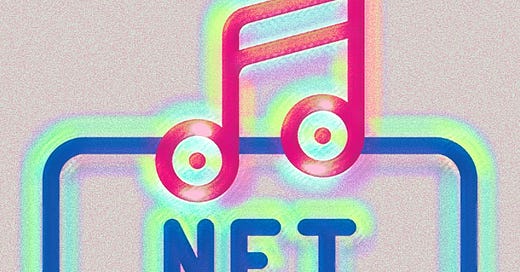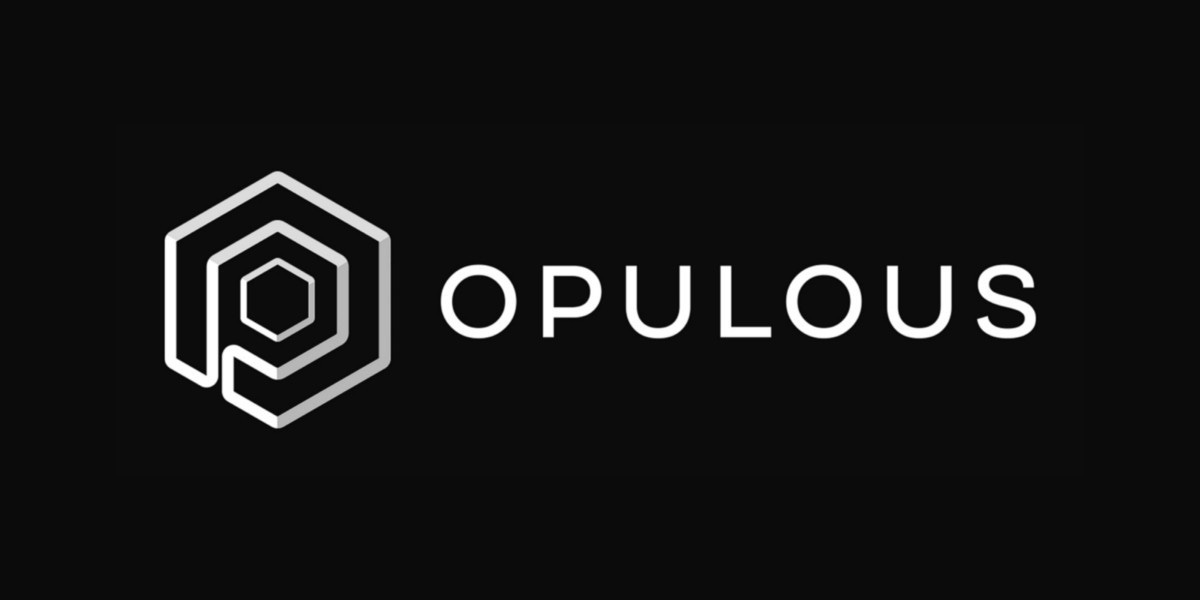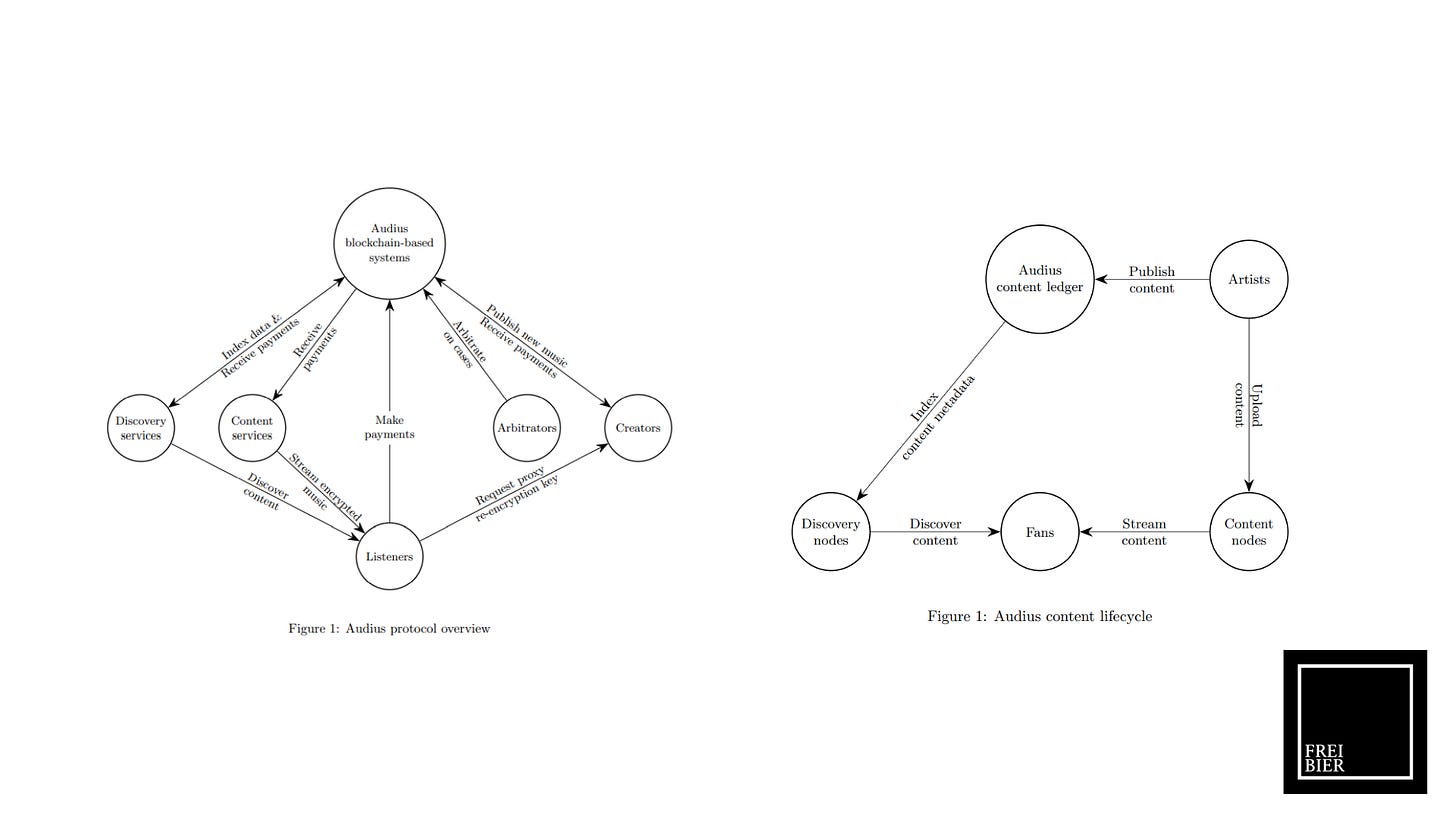Investing in Music NFTs
Blockchain technology is about to tip the scales of the music industry, shifting the power from intermediaries back to content artists and fans.
In 2021, the total revenue of the music industry amounted to 61.82 billion U.S. dollars. However, only 12% of that revenue goes to content artists as a significant portion of the profits are absorbed by intermediaries.
Furthermore, artists have minimal control over how their music is distributed and little visibility into who is streaming it. Please note that the exact figures vary across sources but the message is all but the same: The content artist is getting shafted!
Now add the blockchain revolution and you got yourself an industry that is ripe for disruption and innovation. New blockchain based platforms are launching weekly to help artists leverage NFTs, social tokens and DAO infrastructure to create new economic models around creativity and fan engagement.
Water & Music is an independent newsletter and research DAO, which is on a mission to empower music and entertainment professionals with the knowledge and network to do more collaborative, progressive and sustainable work with technology. Here is their market map of music/Web3 tools — which features nearly 80 different startups putting NFTs, social tokens, DAOs in a music- and creator-centric context.
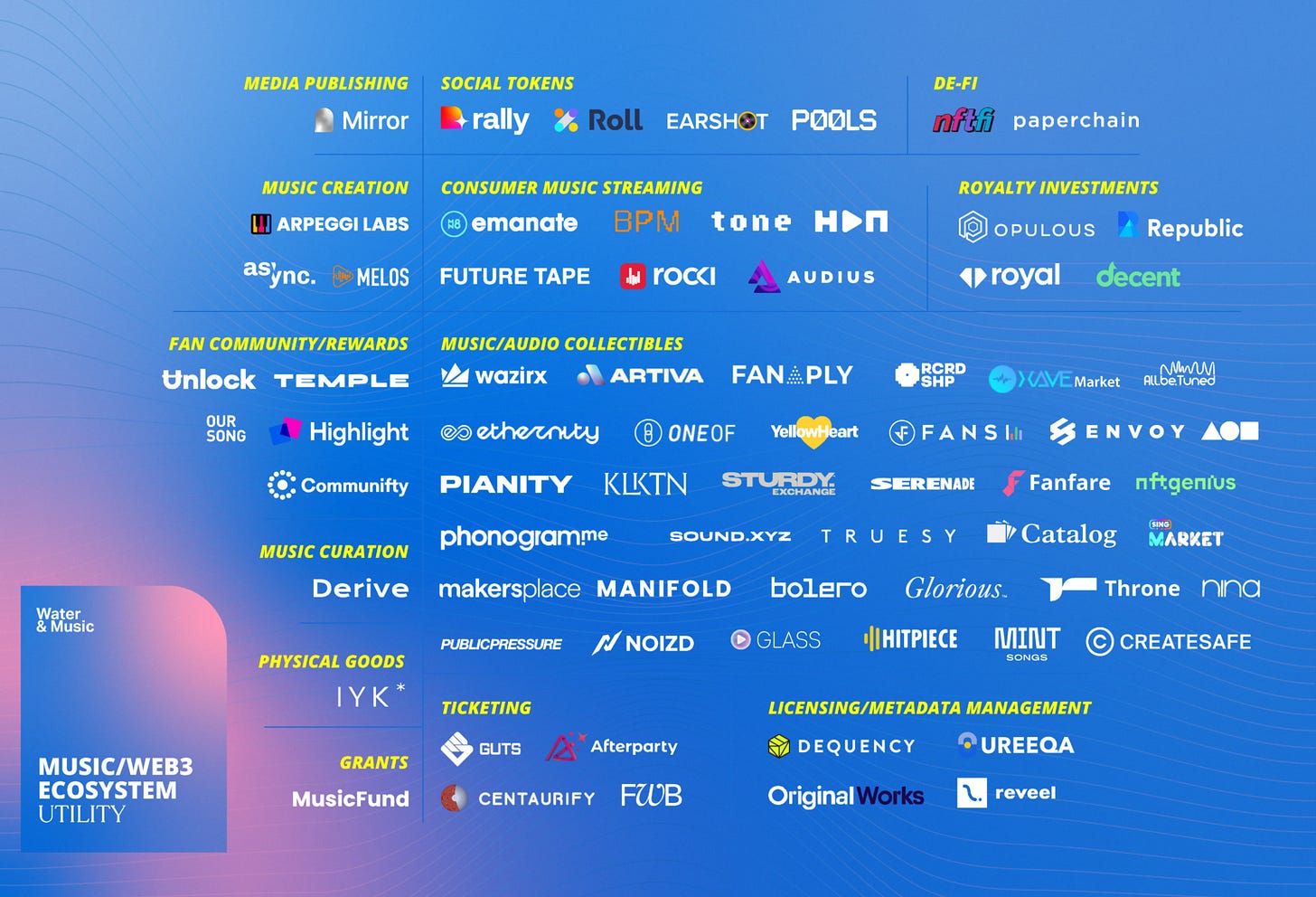
If you love music and believe that blockchain technology is about to tip the scales of the music industry then you’d better get your spectacles out and examine this diagram very closely. For I have the feeling that there is some serious alpha to be found in some these of projects.
Cooper Turley would certainly agree. (Partly, one suspects, because he is invested in Audius but he makes an excellent point nevertheless.)

I have found Water & Music’s diagram fairly insightful and subsequently zoomed in on a few projects that I find very interesting.
So here are my list of top music projects that I will keep my eyes on in 2022:
OPULOUS ($OPUL)
What is Opulous?
Opulous brings DeFi to the music industry, providing a launchpad for the first music copyright-backed NFTs as well as DeFi loans that will change how artists access the funding they need.
The platform comprises three main functions:
NFT Launchpad
NFT Exchange
DeFi Loans

Opulous Music NFTs are a new form of Non-Fungible Token, offering buyers a share of a song’s future royalty earnings and exclusive rewards in exchange for social media support.
Opulous peer-to-peer DeFi loans to cut out traditional banks, middle-men and major labels, allowing artists to access up-front cash based on the predictable royalties they generate over 12 months.
What about market viability?
According to Opulous, its project is a music industry first, with no direct competitors and only a small number of other projects occupying the same space. Unlike most other blockchain projects, Opulous is based on real-world music assets with stable and predictable value.
The $OPUL token can be used to receive special discounts across the platform and token holders will also get exclusive access to major NFT drops.
Opulous founder Lee Parsons is also the CEO of global music distribution platform Ditto Music. This partnership will introduce the platform to over 500.000 musicians worldwide from launch (nice synergy here — love it).

You will find all the investor information here.
Here is Lee Parsons explaining how Opulous works:
I was feverishly rummaging through YouTube in search of confirmation bias and I came across CoachK. As you can see I had to dig deep in the influencer box to find this guy. In fairness, I think I saw him once featured on Crypto Banter and the points that he makes are excellent.
To be sure Opulous is definitely not featured on Real Vision Crypto (yet), nor has it been the talk of the town in the influencer circle — heck the Coin Bureau hasn’t even covered it yet (and that says something). At #522 and a market cap of $83 million is still considered a ‘small-cap crypto’ project otherwise known as ‘penny crypto’. So definatetly #DYOR and above all don’t bet your EtherRock NFT on it just yet.
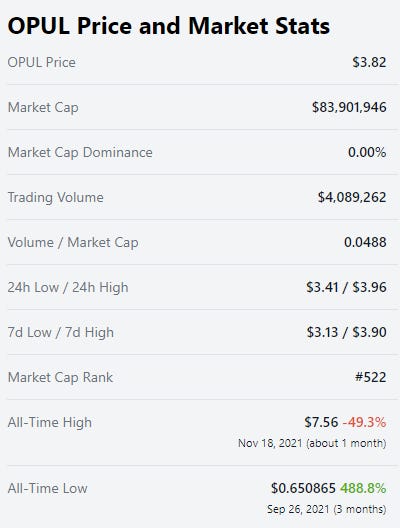
However, being relatively unknown means that it has yet to be discovered, which leads me to conclude that the upside on this token cannot be ignored. Fundamental analysis reveals a solid project. Opulous solves a real problem and I love the team. Lee Parsons has been in the trenches and appears to be on the ball. There are definitely some nice synergies going on with Ditto Music as well.
Their idea of Music NFTs, which offers fans a share of a song’s future royalty earnings and exclusive rewards in exchange for social media support, are a game changer. Speaking of which, I’d love me an NFT piece of Pātea Māori Club — who wouldn’t?
Please note that Opulous isn’t alone in its space, either: competitors with a similar take include Royal, Royalty Exchange and SongVest, all of which appear to be marketplaces for music NFTs, allowing users to purchase shares of songs then earn royalties on the music they’ve invested in. #DYOR at your own convenience. *Royal and Royalty Exchange do not have a token yet, while SongVest does not appear to be a blockchain based project at all.
Next up we will take a look at Audius, which is fairly well known among the crypto community.
AUDIUS ($AUDIO)
What is Audius?
In a nutshell, Audius is like Spotify or SoundCloud, but on the blockchain with a social media component.
Founded in 2018, Audius is a decentralized music streaming service that lets artists upload their tunes to the app and connects fans directly with artists and exclusive new music.
It was originally built on POA Network, an Ethereum sidechain, and later moved parts of its service to the Solana blockchain. Developers can build their own apps on top of Audius, giving them access to a unique audio catalogue.
According to Decrypt, Audius is one of the largest non-financial crypto applications, which is owned and run by an open-source community of artists, fans, and developers. It passed more than 5.55 million unique users in December 2021, jumping from 2.9 million unique users in January 2021.
At first sight, Audius definitely seems like a nifty project to consider in your crypto portfolio. For context, Audius is basically a censorship resistant SoundCloud and this in and of itself should be mouthwatering for any crypto enthusiast. What’s more is that TikTok has picked Audius to power their new ‘Sounds’ library. Bullish sign indeed!
Their market cap is still under $1 billion and it has yet to break into the top 100 market cap rank so there is certainly plenty of upside for this little gem.

Again, I was going through YouTube in search of confirmation bias and this time it was much easier to find related content. Real Vision Crypto, Unchained Podcast, even the Coin Bureau are all onto the Audius trail. Here is an interesting interview I have stumbled across by Jason Calacanis and Audius co-founder Roneil Rumburg.
*As you may know (or not) I am a big fan of Jason Calacanis. He also features in the All-In Podcast with Chamath Palihapitiya, David Sacks & David Friedberg, which covers all things economic, tech, political, social & poker. This is a must for every investment connoisseur.
So far so good — great interview. Audius this, Audius that — everything is peaches and cream up until the 57th minute where Jason summarizes:
So there is an unknown organization in Panama which we don’t know who’s on it that controls $450.000.000 worth of tokens.
Wait a minute so we have Panama, crypto, $450 milion, and nobody knows who owns it because of “security” reasons? Please do me a favour and listen to it for yourself. (You can find it at the 57:15 minute mark.) This revelation caught me off guard and at this point I have to seriously wonder whether I am the only one who thinks that this is dodgy as f*ck? I am still learning myself so maybe I am overanalyzing this — what are your thoughts?
A little red flag here but let’s keep it rolling. Let’s consider the founding team behind Audius. The Audius site lists Roneil Rumburg and Forrest Browning as Co-founders. Fair enough but who the f*ck is Ranidu Lankage?
So it appears that Ranidu Lankage was also part of the team until he wasn’t. Is he the whale in Panama who controls a significant amount of tokens? Fair enough, sometimes things don’t work out and that is okay. A little transparency would be useful as the founding team is a critical matric when evaluating a crypto project.
The ball doesn’t stop there though. The Audius protocol has also been altered over time. The earlier version used a protocol token called Loud. See for yourself: This is the 2019 whitepaper and this is the 2020 whitepaper. I have made a diagram for side by side comparison.
All in all, I believe that a little transparency is in order. Clearly, Ranidu Lankage was given the boot or whatever and some changes were made to the protocol. This in and of itself is okay but be upfront about it. Isn’t that a fundamental pillar of the blockchain revolution — transparency? It is like farting rather loudly on your first date and then pretending nothing happened!
In 2018 Co-founder Roneil Rumberg told CoinDesk in an email that he believes Audius distinguishes itself from existing platforms by not depending on any centralized infrastructure, adding:
"We strongly believe in the value of a fully transparent, decentralized and community-driven effort to share the world's audio content."
So much for transparency!
Overall, Audius’ credibility is very low in my books and as such I will not be participating in a potential Audius craze. Aside from the bizarre tokenomics and all the skeletons in their closet, I still fancy the token to get a fair bit of a pump. As such I am in a bit of a dilemma and have accordingly decided to invest $50 bucks into Audius. If it does pump to the moon I will be taking my wife and daughter out to Sizzler.
Last but not least I would like to tell you about Rally, which has caught my eyes for some time now.
Rally ($RLY)
In short, Rally is an Ethereum token that powers the Rally network. Rally enables creators and online communities to launch their own cryptocurrencies. By creating these so-called “social tokens,” fans can gain access to benefits like unreleased content or merchandise, while creators can unlock new forms of revenue.
I have first come across the Rally token in Real Vision Crypto’s 4 part special called ‘Hugh Hendry: The new economy of community tokens’.

In this particular episode Real Vision Crypto senior editor Ash Bennington welcomes Kevin Chou, founder & CEO of Rally, and Hugh Hendry to discuss how Rally is using tokenization to create an ecosystem for content creators. From live music to gaming, Rally is building a community of various content creators who are chosen and vetted by Rally token holders democratically. Chou, Hendry, and Bennington dive into the intricacies of the Rally network and how Chou’s background in gaming shaped its creation.
*You definitely might have to print out the transcript for this one — Hugh Hendry’s accent is hard yakka!
Please watch this interview if you want to find out more about the Rally token. Suffice to say is that I strongly believe that 2022 we will see an increasing trend in the monitization of communities. Rally in particular enables digital entrepreneurs, crypto influencers, brands, and celebrities to create better engagement and monetization opportunities within their communities without depending on any individual social media platform.
In summary, many people dismiss NFTs as expensive JPEG’s. But that’s not all they are. Blockworks rightly points out that nearly anything that can use unique identifiers can benefit from NFT technology. Not only for digital ownership, but digital access, digital community and digital identity.
Blockworks further adds that participants in the Metaverse can use NFTs for real estate, clothing and personalization. DAOs can use NFTs to mark specific roles for members to occupy, or even just to signal group membership in a personal way.
And music in particular, as both an art form and a business, is being completely reimagined by NFTs. Put on your thinking cap and be in it from the beginning. It makes sense to me and I can see it loud and clear. Here is Water & Music’s market map of music/Web3 tools again. Which project has caught your eyes? Will it be able to scale?

I like me some Opulous, Royal, and Rally. To be sure it’s a trend that has caught the eye of many musicians, who see it not only as a new revenue stream but also a way to bring passion and excitement back to the relationship between their fans and their industry.
Royal, for example, just garnered $55 million in a Series A round that included support from Andreessen Horowitz’s a16z crypto fund, Coinbase, and rappers Nas and Joyner Lucas.
Audius too might be worth a closer look but I don’t vibe with their shady behind the scenes business and lack of transparency. That said I am keeping an open mind and will be following their progress or lack thereof. Enough said!
This will be my last post for the year of 2021 (I promise). What an amazing ride! For those of you who have subscribed to my newsletter and have actually read this far a sincere thank you! I have initially started writing just for my own learning and my readership didn’t extend beyond my wife. To my surprise I have 40+ subscribers. Amazing and thank you for your vote of confidence!
Happy New Year’ing ya’ll!
Frei Bier / Twitter: @FreiBIER13
Medium: https://freibier.medium.com
DISCLAIMER: My writings are merely a reflection of my learning journey and my attempt to compartmentalize the cryptoverse. I am learning out loud so feel free to correct me or disagree with me. This is not investment advice but my hope is that you find value in some of my links and ideas.
